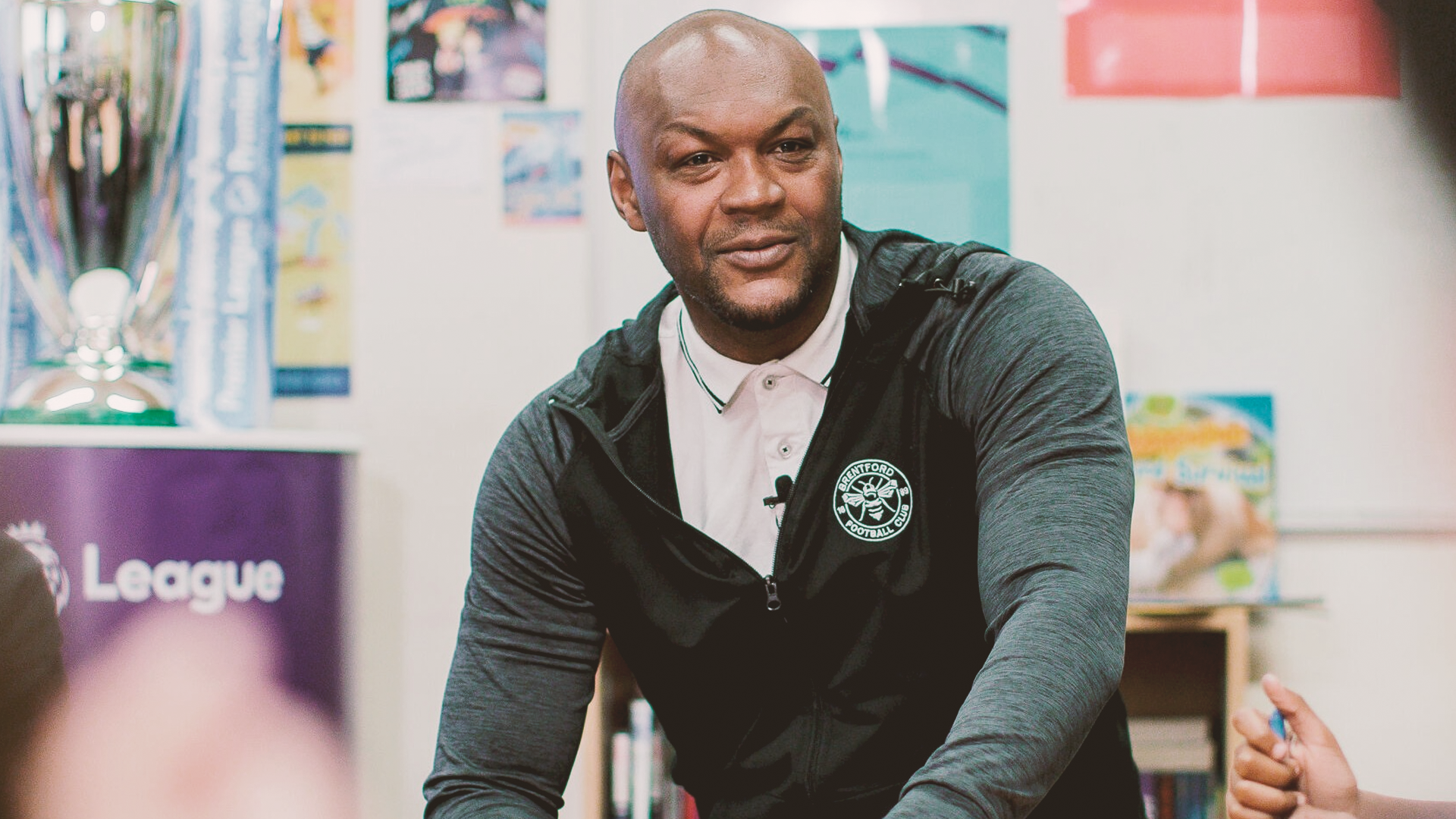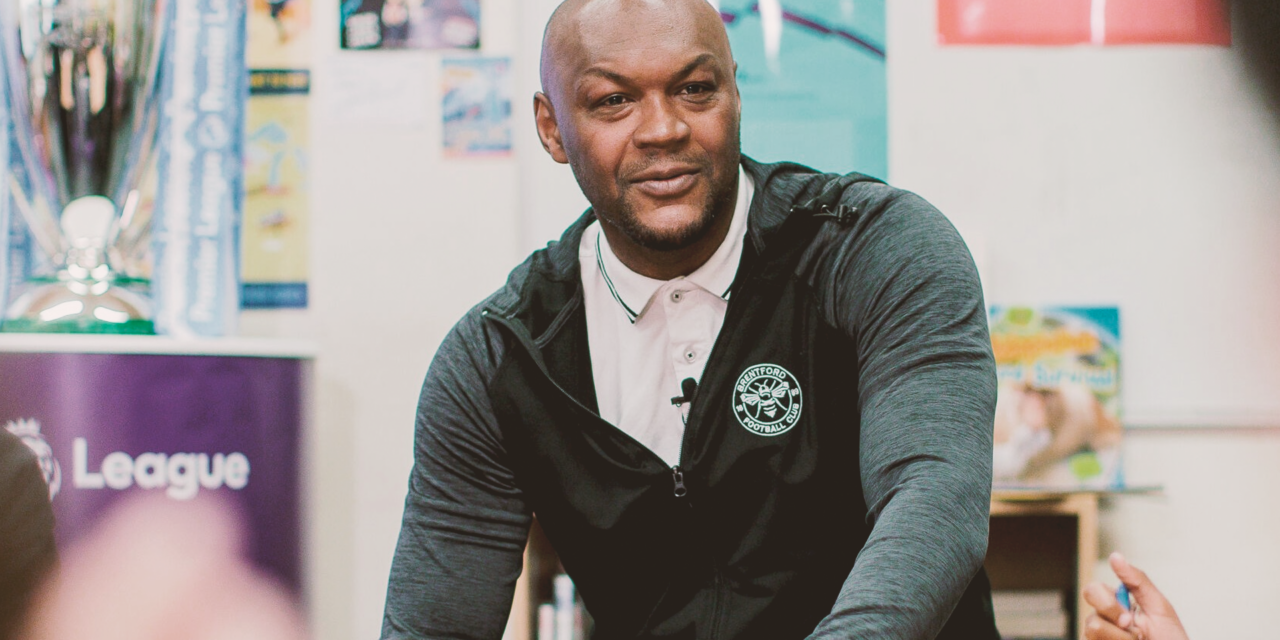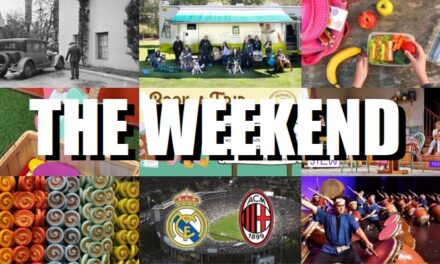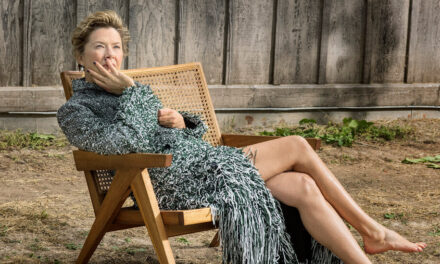
This year’s Black History Month theme is sisterhood. Naturally, the woman who has had an impact on my life has been my mother, who is still with me, despite her getting a bit older.
She’s always been a constant figure in my life and the person who would make the sacrifices. She played a big part in my early years. Although being a stroppy teenager, she gave me the belief to push myself.
While I was a professional footballer, she was my biggest supporter. But it took some time to convince her that football was going to be my focus. She always saw me kicking a ball around the house, breaking things, and going to play outside.
But it was only when she came to watch me play one day for my Sunday League team, saw how I played, witnessed the crowd’s reaction and the positive response that it all clicked for her. She could see, ‘They think of him highly. They want him on the ball’.
Some might wonder why my mother was hesitant. Becoming a footballer should be an exciting journey for any mother and child, but it was the early 1980s – the atmosphere around football wasn’t very pleasing – not just for players, but for families in the stands. The 80s were the time of the Brixton riots when racial tensions were high. Everyone that looked similar to me was a suspect.
While I was playing football, there were many little things that my mum didn’t know at the time, as I tried to shield her from any concerns. For example, I’d walk home from McDonald’s while playing for Brentford because I didn’t have enough money to get on the bus. I would have to walk five miles to get home. When I’d eventually arrive, she’d ask, ‘What time are you calling this?’ and I’d reply, ‘I just stayed a little late’. I didn’t want to worry her.
My mum is stubborn-headed but very humble as well. She didn’t have any idea about the business side of football. I just wanted her to sign my contract so I could join Brentford, which she did reluctantly when I was 14. I was sweating overnight, just hoping that she signed the papers so I could come back to Brentford.
At 16, I left school to take up two years in the Youth Training Scheme. It was then my relationship with my mum became a lot stronger. I had to grow up pretty quickly. My mum would always say that I gave her such comfort at 16. She didn’t have to really worry about me financially, even though I wasn’t getting paid anything near like what players are getting paid today. I said, ‘Mum, don’t worry about me. I’ll be fine’.
When I encountered challenges in football, I kept them from her. I didn’t want her to have any more to worry about. I wanted her to feel that I’ve got this. There were issues around racism especially when I used to play Sunday League football, but I didn’t tell my mum as I didn’t want her to hear about me receiving that abuse. I told my uncle and we dealt with it.
Life for a young mum back then, like at any time, was tough. So I was trying to alleviate or not add any more societal stresses to my mum. I just wanted her to have a peaceful life.
She’s always enjoyed coming to matches. Even now she still watches matches more than me at times which is crazy. I’ll call her on the phone and ask, ‘What are you doing now?’ and she’ll reply, ‘I’m watching football.’
I remember we played Manchester United in the FA Cup and she was drooling over Andy Cole. She was so proud to get a picture with him – to the point she had a framed picture of her and Andy Cole in the house!
My mum has taught me some key values such as punctuality. She’s the one that scolded me into being on time. So that starts from school – I was never late. She also taught me to be myself, believe in myself and be honest.
My mum taught me to see different perspectives. At 19 when I was at Brentford, I think I was one of our first-ever players to go out on loan abroad. I was being sent to Finnish side, KuPS. I told my manager I didn’t want to go. I had a conversation at home and my mum agreed with the manager. She said, ‘It could be the best thing that happens to you’. And I ended up going.
When it came to a contract negotiation at one of my former clubs, I spoke to my mum the night before. And she said, ‘Well in your heart you must know you are happy with your contract. So ask for more than what you really want’. I went in with that and it worked.
Thanks to my mum, I am the person I am today. Black women have had to handle a lot of pain, which makes them very resilient. This is something I admire, but they do get tired and wearisome.
We often think we don’t need to worry about them. No – check in on them, and ask how they are as they need our support.




